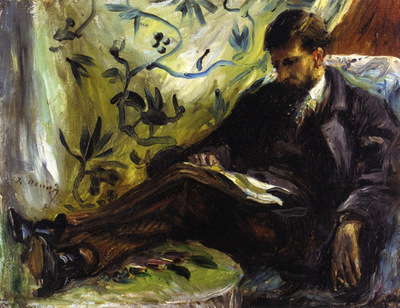The other day I did something I almost never do. I reread a book. Here’s how it happened.
I was coming to the close of William Faulkner’s As I Lay Dying (an audiobook, on my way to work, so I had no idea when the book was going to end) when the final line absolutely punched me in the face. After sharing an exasperated “WHA?!” with the laptop bag sitting in the passenger seat, I immediately pulled up track #1 and started the whole thing again. It was the first time I’ve reread a book in years.
A little background for those who aren’t familiar with the book: Anse Bundren is an incompetent and lazy ne’erdowell of a character who constantly complains that he “wouldn’t be beholden to no man,” but who in reality is beholden to everyone around him. This is a man who not only drives his kids across a raging river in a quixotic quest to carry his wife’s coffin to her home town for burial, but who deals with the numerous setbacks along the journey by riding roughshod over every other member of his family.
He sells Jewel’s horse (his one prized possession), takes Cash’s money and sets his broken leg in cement to save a trip to the doctor, has Darl committed to a mental institution, and takes the money Dewey Dell has hidden away to end an unwanted pregnancy. Still, the reader is almost willing to excuse this obviously broken man of all his imperfections, because he is trying for once in his life to do the noble thing and carry out his late wife’s last request. That is, until the closing lines smack you over the head.
When he shows up for the journey home with his long-coveted set of false teeth and a brand new woman in tow (An old acquaintance? A relative of his wife’s?), one starts to question the whole premise of the story. And when Anse speaks the final words that bring the novel to a close, the reader realizes there never was a single shred of nobility anywhere in him:
“Meet Mrs. Bundren,” he says.
Those final words cast a dark shadow over the entire novel. I had to go back immediately and reread the book through this new prism to see what I had missed.
I rarely reread anything, and can’t say that I’ll make it a practice. But with this book in particular, a stream-of-consciousness tale told from the heads of fifteen narrators with a slightly jumbled timeline, I was absolutely floored by the amount of color and texture and depth that had gone unnoticed on my first pass through the book. Maybe I agree with Nabokov on the subject of re-readings after all.
I rarely reread anything, and can’t say that I’ll make it a practice. But with this book in particular, a stream-of-consciousness tale told from the heads of fifteen narrators with a slightly jumbled timeline, I was absolutely floored by the amount of color and texture and depth that had gone unnoticed on my first pass through the book. Maybe I agree with Nabokov on the subject of re-readings after all.
What about you? Do you reread? And if so, what are the books that have made the second cut?

